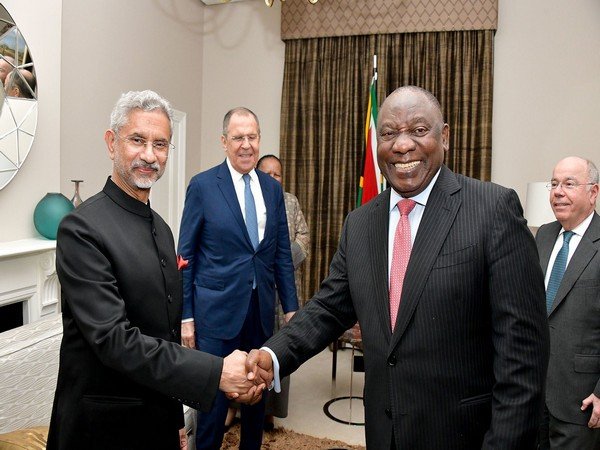End of the Empire is a twice-monthly feature on all news relating to the transition from the unipolar world of the US Empire to a multipolar world.
In Cape Town, South Africa, Russian Foreign Minister Sergei Lavrov met with senior diplomats from the BRICS nations (Brazil, Russia, India, China, South Africa) for discussions that included the group’s possible expansion to include the major oil-producing nations of Saudi Arabia, Iran, and the United Arab Emirates.
The idea on the minds of all in attendance was that by mutual guarantee of trade, they can all avoid falling afoul of Western sanctions and restrictions, and that by UN Sec. Council reform, a stronger voice for multilateralism could guide future global policy.
The South African Foreign Minister Naledi Pandor confirmed to reporters that as head of state of a BRICS nation, Vladimir Putin was invited to a follow-up meeting despite the warrant for his arrest issued by the International Criminal Court, of which South Africa is a statute member.
The meeting came as the heads of state of the G7 met in Hiroshima to discuss further sanctions on Russia over the war in Ukraine, and how to deal with China’s economic influence in Asia, things which must have been on the BRICS members’ minds when they met in Cape Town.
“Against the backdrop of the West’s actions, our countries… should actively seek universal joint answers to the challenges of our time,” Lavrov said. Also keen to speak was South Africa’s ambassador to BRICS, Anil Sooklal, who decried Western weapons transfers to Ukraine as “fuel” in the conflict and ultimately unproductive to resolving the situation.
Sooklal informed the meeting that 20 different nations had “formally or informally” requested to become part of BRICS, while Iran, Saudi Arabia, and UAE, had all made formal procedural submissions.
“We are happy to see that more and more countries expressed their willingness to join us in the BRICS family,” Chinese Vice Minister of Foreign Affairs Ma Zhaoxu said through a translator. “China will welcome the invitation of those countries to join BRICS and we expect more countries to join our big family”.
Foreign Minister Pandoor responded to Lavrov’s comments about an unfair world order dominated by the US, Europe, and Canada, by blaming the lack of a permanent African presence on the UNSC, adding that the body “must be reformed”.
Nearly all African nations are members of the Movement of Non-Aligned States, and with only occasional presence on the council via rotating seats, there is a lack of a consistent non-interventionist voice there.




